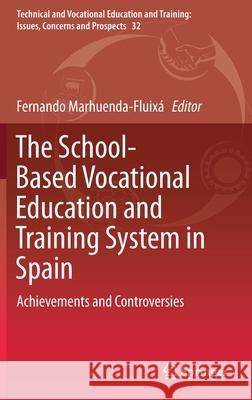The School-Based Vocational Education and Training System in Spain: Achievements and Controversies » książka
topmenu
The School-Based Vocational Education and Training System in Spain: Achievements and Controversies
ISBN-13: 9789811384745 / Angielski / Twarda / 2019 / 229 str.
The School-Based Vocational Education and Training System in Spain: Achievements and Controversies
ISBN-13: 9789811384745 / Angielski / Twarda / 2019 / 229 str.
cena 402,53
(netto: 383,36 VAT: 5%)
Najniższa cena z 30 dni: 385,52
(netto: 383,36 VAT: 5%)
Najniższa cena z 30 dni: 385,52
Termin realizacji zamówienia:
ok. 22 dni roboczych.
ok. 22 dni roboczych.
Darmowa dostawa!
Kategorie:
Kategorie BISAC:
Wydawca:
Springer
Seria wydawnicza:
Język:
Angielski
ISBN-13:
9789811384745
Rok wydania:
2019
Wydanie:
2019
Numer serii:
000479807
Ilość stron:
229
Waga:
0.52 kg
Wymiary:
23.39 x 15.6 x 1.6
Oprawa:
Twarda
Wolumenów:
01
Dodatkowe informacje:
Wydanie ilustrowane











